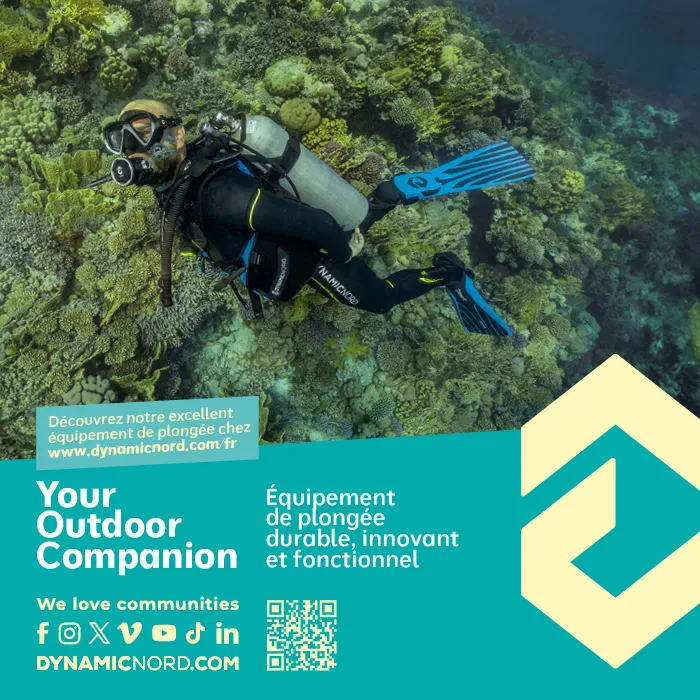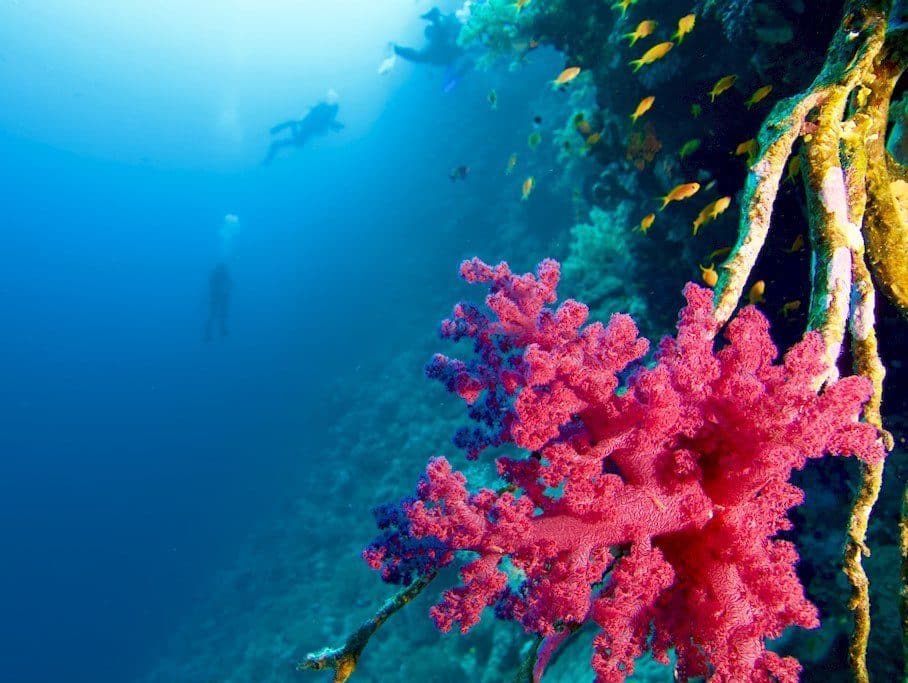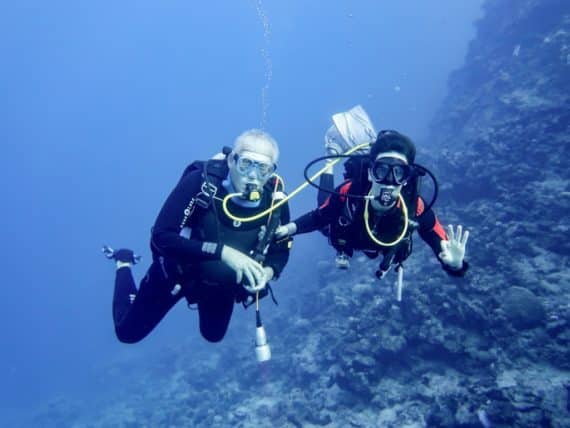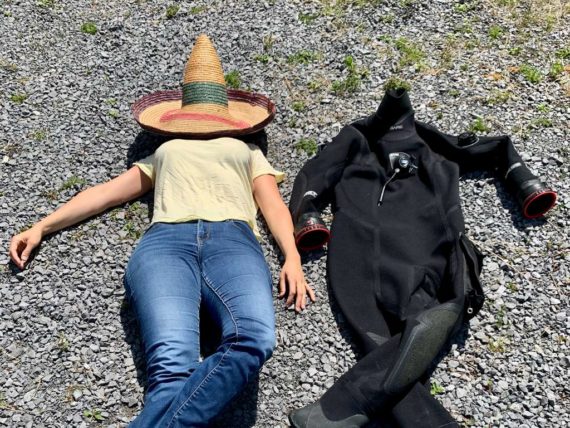Diving accident: the allergy in question ?
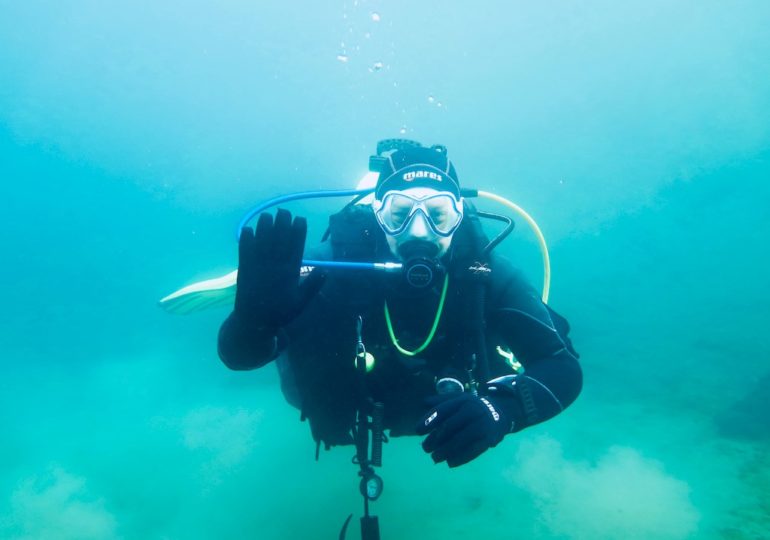
Some incidents and / or diving accidents remain mysterious and unexplained
It’s therefore difficult to prevent them and to prevent others from going through these stressful moments. Allergy is maybe the cause.
That could have been the case for Daniel in May, somewhere in Belgium.
For more than 6 months. Daniel has taken a theoretical diving course in class and practice in the pool every week. He handles the dive equipment properly. Manages his buoyancy fairly well, knows the main principles and laws governing diving and, as he has an initial training as a nurse. He is particularly sensitive to all the “medical” aspects of diving. Allergy is part of a dive check.
Today is the D day
With his friends, they will be able to discover the joys of diving in open water.
During the briefing, it is decided that Daniel will dive with his usual instructor. He is the most experienced of the instructors present and whom he trusts.
As the privileges of their certification agency allow them. It is decided, that if Daniel feels comfortable in the zone of -10 m for this first training dive, they will evolve towards the wreck of a bus on this dive spot to a maximum depth of -17m. And constituting one of the points of interest of this lake.
Everyone is getting ready happily and let’s go.
Daniel discovers the aquatic world with gentleness and confidence. He feels good and explores the site with his instructor to the expected depth.
In order not to be cold (we are in Belgium anyway). The instructor does not stay on the bottom very long and calmly starts the ascent following the gentle slope of the lake.
At about 5-6 meters deep, Daniel feels a sharp pain in the upper left jaw (in the premolars). So far allergy is not considered.
He thinks that a tooth has cracked or broken. But at the passage of the tongue, no breakage in the teeth.
Back at the surface,
About twenty minutes after he started the dive. He realizes that all his teeth of the upper left jaw are anesthetized. (as at the dentist) As well as the left cheek (internal and external face). And begins to stress.
Once out of the water and his gear removed. The pain rather than disappearing, spreads over most of the left hemiface and Daniel feels nausea that he attributes to vagal discomfort caused by pain. He informs his instructor of what he feels. And still not sign of allergy.
Indeed, everyone sees that Daniel is actually “not well at all”.
To make sure, the instructor offers him to take oxygen for 30 minutes and paracetamol asking him if he has no allergy to paracetamol. Even if at this time and given the dive profile nobody associates the problem with a decompression accident.
The pain fades away gradually, Daniel regain colors and paracetamol helps him to reduce the pain. No more nausea or pain but still this insensitive jaw.
His instructor advises him to check with his dentist because he is not a doctor and he has never had the case despite thousands logged dives.
In search for the cause, could allergy be the cause ?
The next day, Daniel still has an insensitive jaw. He phones DAN to talk to a doctor dealing with hyperbaric medicine.
For this specialist, it is possible that the sinus canal (from the maxillary sinus to the nasal cavity) is obstructed. And that the air in the sinus (first compressed by the descent and decompressed during the ascent) can not get out of the sinus. Looks like a mechanical proglem not allergy.
This doctor reports that he already had divers with a fractured sinus after this kind of incident
The air must come out by any means, if it is necessary the sinus will break!
Daniel goes to see his dentist who excludes a dental problem.
He then went to a specialist in maxillofacial dentistry who diagnoses sinusitis and prescribes antibiotics. No improvement …
Daniel then goes to his ENT specialist which makes him various tests that will reveal sinusitis in the left maxillary sinus and the presence of a polyp.
So here it is: a polyp probably of allergic origin!
This polyp, when the air wanted to leave the sinus during the ascent, obstructed the sinus canal. The polyp was so good out that the ENT saw it in the nasal cavity!
On leaving the sinus, the polyp also compressed the under orbital trigeminal nerve (the one that innervates a part of the cheek and the teeth of the upper jaw) and caused the pain and anesthetized teeth.
It’s therefore a barotrauma triggered by an undetected allergic reaction until this dive.
Treatment of allergy
A treatment was put in place by the doctor. Powerful antibiotics in high doses; medrol (cortisone) for two months; obligation to blow your nose every morning.
To follow, a background treatment is proposed: antihistamine spray during the pollination season every morning after blowing (important to blow your nose to prevent the accumulation of secretions that may cause sinusitis) and the use of a decongestant spray 20 minutes before diving.
Back to diving
After approximately 6 weeks in “dry dock”, Daniel takes a short, shallow dive (max 10 meters)
Everything is going very well, although he can not help but have a little apprehension during the ascent.
4-5 dives later, Daniel does not think about this incident anymore and continues his training successfully.
Today, after more than a hundred dives and an autonomous diver certification up to – 40m in his pocket, he admits that he sometimes forgets to take his preventive treatment … not good!
Daniel was the victim of a barotrauma caused by an allergy he did not know about until this dive. Well treated, this allergy is no longer a show stopper to dive but forces him to take it into account by following a treatment to continue to dive safely.
What does the story of Daniel tell us?
The underwater world is not our natural environment and, in some ways, we are all guinea pigs (as I had developed in this article). Also, when we are confronted with a diving incident or an accident, it is interesting on one hand not to be locked in the silence (remember that there is no shame to have… => read HERE) and, on the other hand, to learn from it.
In the case of Daniel, we can highlight a few things on top of allergy:
- An incident must ALWAYS be taken seriously
- Administering oxygen is a good reflex at least to calm the person (real effect and / or placebo … it does not matter), each person is unique
- We are sometimes victims of physical defects or of our own sensitivities, … that we do not know and which can prove to be a problem for the practice of diving. Ex: an allergy, a patent foramen oval , a light diabete, …
- Untreated and / or undetected allergy can cause unpleasant or even dangerous effects when immersed even at shallow depths.
- It is sometimes useful to investigate long enough to understand what happened during a dive incident / accident
- Certain pathologies and / or problems such as allergy do not constitute a contraindication to diving, provided that a follow-up by a specialist and appropriate treatment is implemented.
- Call DAN, they are there to help, they will not juge you
Together, we can help increase safety when diving by sharing our experiences and putting everything in place so that it does not happen to others.
Share the article if you want to participate in the prevention of diving incidents and accidents.
Have you ever been a victim of a similar diving incident / accident? Share your experience in a comment below to share your experiences with divers
And most importantly, … do not forget to be happy
Helene
[ READ ALSO ] these articles on the prevention of accidents in scuba diving
PS: do you want to stay connected and want to be notified of upcoming articles? Sign up on the Facebook Page, for the Newsletter or check the box reserved for this purpose by posting a message below … other articles will follow very soon

